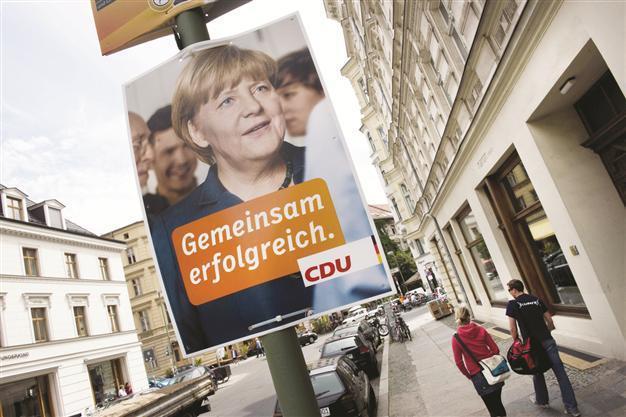Greek bailout raises pressure on Merkel
BERLIN - Reuters

People walk past an electoral placard for the Christian Democratic Party (CDU) featuring German Chancellor Angela Merkel in Berlin. AFP photo
German opposition parties accused Chancellor Angela Merkel on Aug. 11 of lying before elections next month about the risks of a new bailout for Greece, after a magazine reported the Bundesbank expects it will need more European aid in early 2014.
Der Spiegel quoted an internal document prepared by the German central bank as saying that Europe “will certainly agree a new aid programme for Greece” by early next year at the latest.
The Bundesbank, which declined comment, also described the risks associated with the existing aid package for Greece as “extremely high”, according to the report, and said the approval last month of a 5.8 billion euro ($7.7 billion) aid installment to Athens had been “politically motivated”.
The report could not come at a worse time for Merkel, who is favoured to win a third term in the parliamentary election but could fall short of the votes she needs to retain power with her preferred partner, the business-friendly Free Democrats.
Aware that German voters are sceptical about more bailouts, she has repeatedly played down suggestions Greece may require extra aid, or debt relief, despite conflicting views from experts, including at the International Monetary Fund (IMF).
Opposition politicians seized on the report, with Social Democrat budget expert Carsten Schneider accusing Merkel of lying to ordinary Germans due to fears of an election backlash.
“There will be a rude awakening after the election,” Schneider said in a statement. “By disputing the need for additional aid for Greece, the Chancellor is lying to people before the election.”
As Europe’s largest economy, Germany has the largest exposure to Greece, which has received two European Union/IMF bailouts totalling 240 billion euros ($320 billion).
